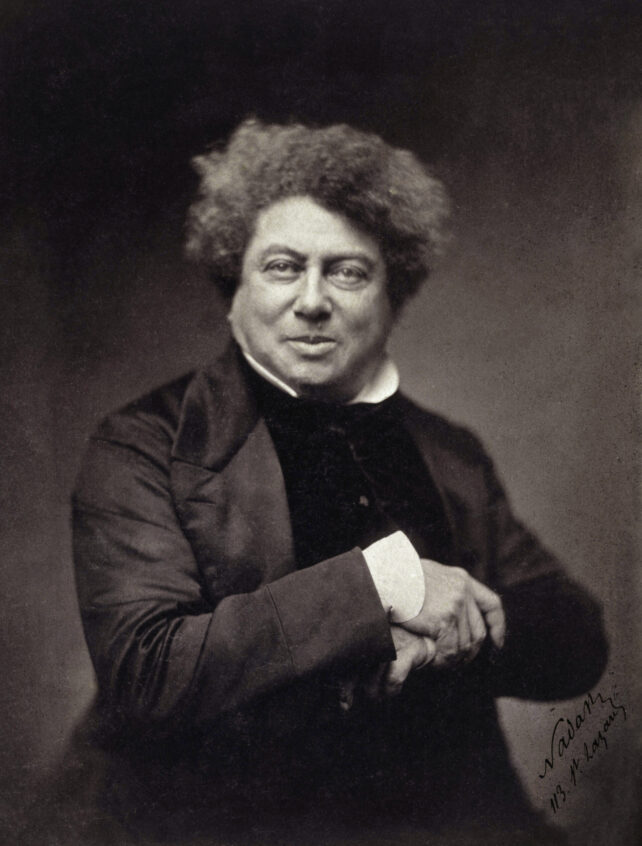
Day four highlights the literary giant whose racial and cultural heritage tends to be much more obscure to the average person than his canonical works of art.
Born on July 24, 1802, in Picardy, France, Alexandre Dumas was of bi-racial Haitian heritage. His father Thomas-Alexandre was born in Haiti (Saint-Domingue) and migrated as a young boy to France with his white aristocratic father (Alexandre’s grandfather), becoming a captain in the army by age 31. This made him the first Afro-Caribbean man to gain that rank in the French army. Against this backdrop of ancestral distinction, Dumas, forged his personal success as an author and playwright, becoming known for penning intricate plots and vivid descriptions.
Among his plethora of literary creations, none shine brighter than “The Three Musketeers” and “The Count of Monte Cristo,” both published in 1844. These masterpieces wove tales of courage, betrayal, and redemption, etching themselves into the collective consciousness of readers worldwide. Additionally, “La Tulipe Noire,” published in 1850, stands as a testament to Dumas’s versatility and narrative prowess, further solidifying his status as a titan of 19th-century literature.
Dumas crafted narratives that transcended time and space. His oeuvre extended beyond the boundaries of conventional storytelling, encompassing works like “The Wolf Leader,” acknowledged as the inaugural novel of the wolf-themed genre. His literary landscape is unparalleled, with his works translated into over 100 languages, ensuring that his tales resonate with diverse cultures across the globe.
Even in the modern era, Dumas’s literary legacy continues to thrive, with numerous adaptations of his works gracing both the silver screen and the stage. The discovery and subsequent publication of “Le Chevalier de Sainte-Hermine” in 2005 served as a poignant reminder of his lasting influence, reigniting interest in his timeless narratives.
Alexandre Dumas, who died on December 5, 1870, remains a formidable literary force, and his work endures as a beacon guiding readers through the labyrinth of human experience.

The Three Musketeers – Skerro, Savarin, Blackmoore Yes?
I am just re-reading one of Alexandre Dumas’s novels. His masterly command of the English language makes his work a joy to experience. Almost every page has me reaching for the dictionary for a word that is new to me.
In these days of textspeak, our students could benefit from the literary challenge that his writing demands.
I guess you love going to the dictionary because one man has made it so difficult for you to understand what he’s saying, or trying to say. My friend, there’s a book that’s much easier by far to understand; and it’s the Holy Bible. You will be satisfied with the inspiration of the Holy Spirit. “The foolish things of God is wiser than man.” Go ahead! Give it a try. Then come back on DNO and tell the online viewers your thoughts and what you have discovered. No. You won’t.
You are dead wrong, the Bible isn’t and has never been the easiest book to understand. 1st, it’s kept in old-English Shakespearese type of British cockney. That is deliberately so that ‘you’ victims/sinners don’t understand sh*t. Later the catholics switch to Latin when you-all started to read for yourselves. You think they sleeping?